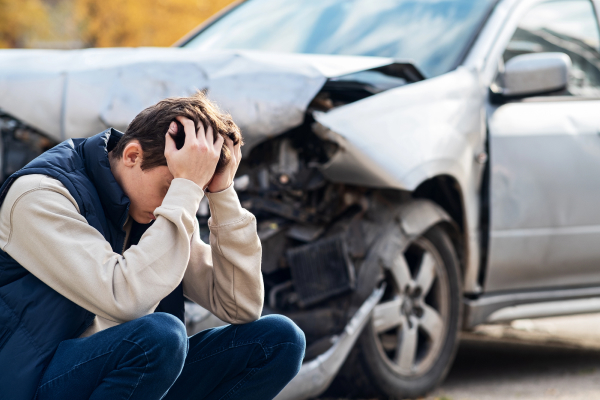
Getting into a car accident that wasn’t your fault can feel overwhelming. You may be shaken, confused, or unsure of what to do next, especially when the other driver caused the crash.
What to do after a car accident not your fault matters. This impacts your ability to claim compensation and safeguard your rights. Acting quickly and correctly can help your personal injury case.
At Fincher Law, our experienced car accident attorneys know how to deal with insurance companies and fight for fair compensation. We’re here to help when you need it most.
First, check yourself and others for serious injuries. If someone is hurt, call 911 right away. Getting medical care at the accident scene is the top priority.
Even if no one appears injured, it’s still important to call the police. An accident's official record is created by a police report. This can support your insurance claim and help determine fault.
Police officers will assess the crash and file an accident report. This step is often legally required and gives your car accident lawyer the proof needed to move your case forward.
Safely move your vehicle to the roadside and engage hazard lights if you're obstructing traffic.
Moving your vehicle helps prevent another collision while you wait for police or medical help. If you can’t move the car, stay inside until help arrives, unless there’s immediate danger.

After a car accident, you are legally required to exchange information with the other driver. Be sure to collect:
Stay calm and respectful, but do not discuss who was at fault. Avoid admitting fault or saying things like “I’m sorry,” which can be misunderstood by insurance adjusters or the at-fault driver’s insurer.
Let your car accident lawyer or personal injury attorney handle questions about fault later. Focus on gathering the right details for your car accident claim.
If you’re physically able, start collecting evidence. Use your phone to capture the scene before anything changes.
Photos and video can help your attorney prove that the at-fault driver caused the crash. Focus on capturing:
Also, take close-ups of license plates, debris, and anything that shows how the accident happened. These images support your insurance claim and help with determining fault.
Send this documentation to your car accident attorney as soon as possible.
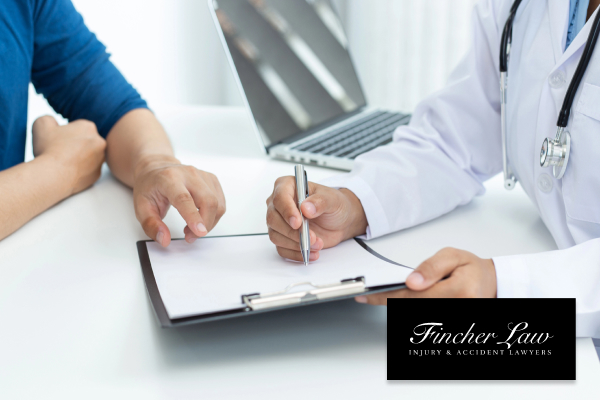
Never assume you’re okay just because you feel no pain right away. Some injuries, like internal bleeding or whiplash, don’t show symptoms right away.
Symptoms may appear hours or even days after the accident occurred. Concussions, soft tissue injuries, and back pain are common examples.
Seek medical treatment quickly to protect your health and your legal rights. Your personal injury and insurance claims hinge on your medical records. Always follow up with a medical professional for a full checkup—even after a minor auto accident.
One of the first things you should do when figuring out what to do after a car accident that was not your fault is to report the crash to your own insurance company. Prompt notification to your auto insurance provider is required for most policies, even when another driver is at fault.
When you speak with your insurance provider, remain calm and stick to the facts. Let them know where the accident happened, who was involved, and whether police arrived at the scene. Avoid admitting fault or speculating on the crash's cause.
Let your car accident attorney handle conversations about responsibility. This protects your car accident claim while your team works toward a fair settlement.
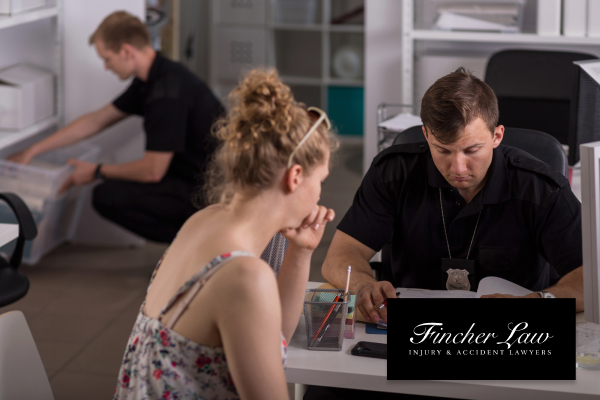
For car accidents, the police report provides essential evidence. When the police arrive at the scene, they’ll collect details, take statements, and file an official accident report.
In Kansas, you can usually request a copy of the report through the local police department or online. The report may include helpful details like the other driver's insurance information, witness contacts, and a summary of vehicle damage.
Your attorney can use this report to show the other party’s insurance who was at fault and to support your claim for damages, medical bills, and lost wages.
After the accident, the at-fault driver’s insurance company may contact you. The fault driver's insurer might seem friendly, but their goal is to limit what they pay.
Avoid accepting blame, guessing about injuries, or discussing policy limits. The best approach is to politely decline to speak and refer them to your legal representation.
Let your attorney talk to the at-fault driver’s insurance adjuster. This keeps your case safe and increases your chances of recovering fair compensation for vehicle damage, lost wages, and medical bills from the other driver's insurer.
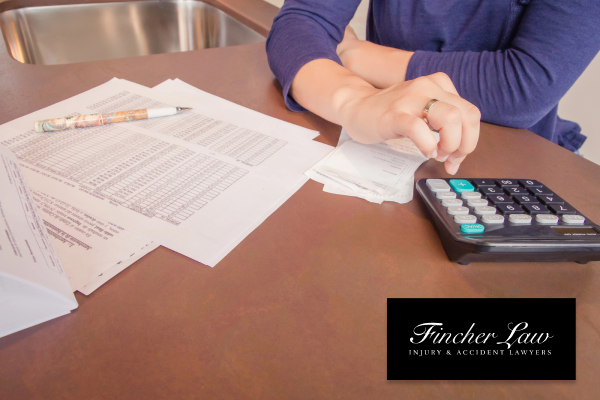
Detailed documentation strengthens your injury claim. After a crash, it’s important to keep track of every cost tied to your injuries or damage.
Save all receipts and documents related to medical treatment, time missed from work, and property damage. These records help your attorney prove how the accident affected your life.
Also, keep copies of insurance forms, emails, and any paperwork from the police or the other driver. Taking pictures and exchanging contact information at the scene is just the first step. Keeping organized records afterward makes it easier to prove your claim and recover full compensation.
Knowing how Kansas handles fault is key to protecting your rights after a crash. Unlike some states, Kansas follows a no-fault insurance system for injuries, but property damage claims still follow a fault-based model.
In Kansas, Personal Injury Protection (PIP) coverage is required. Your own insurance pays for medical bills and certain other expenses, regardless of who caused the accident. However, if your injuries are serious or your costs go beyond your PIP limits, you may step outside the no-fault system and file a claim against the at-fault driver.
Kansas also uses comparative fault rules. This means if you're partly to blame, your compensation will be reduced by your share of the fault. For instance, if you're found 30% at fault, you can still recover 70% of your damages.
That’s why having a lawyer from Fincher Law on your side matters. Insurance companies may try to reduce or deny your claim using these rules. We’re here to make sure your rights are protected.
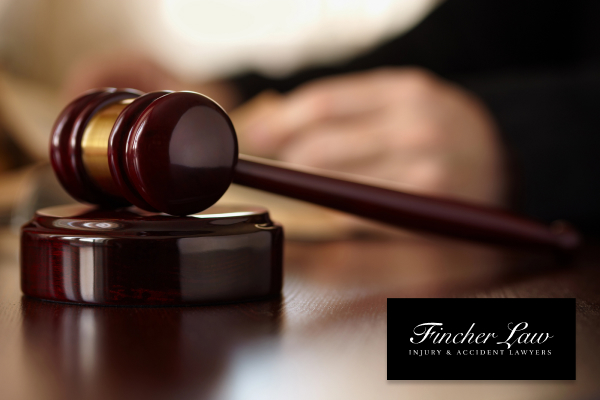
Not every car accident case needs a trial. Many claims settle out of court. But that doesn’t mean you should take the first offer.
If the insurance company isn’t offering fair compensation, your attorney may suggest filing a lawsuit. A lawyer who understands the full value of your claim can help you decide if it's best to settle or fight for more.
From day one, Fincher Law builds a case that prioritizes your needs. Our legal team works to get justice for accident victims who were hurt by someone else’s carelessness.
We begin by thoroughly investigating the accident. This includes collecting evidence, reviewing insurance policies, and speaking with witnesses. We then negotiate with insurance companies to pursue a fair settlement.
If they don’t cooperate, we’re ready to go to court. Our team understands how to use Kansas laws to your advantage, helping you recover what you're truly owed.
Being in a car accident is stressful, especially when it wasn’t your fault. But the steps you take afterward matter just as much as what happened during the crash. One wrong move can give the other party’s insurance a reason to deny or lower your payout.
Avoid these common mistakes:
Each of these can hurt your chances of a fair settlement. Even if you think you're doing the right thing, it's easy to say something that might be used against you. Let a personal injury attorney guide you through what to do after a car accident that was not your fault.
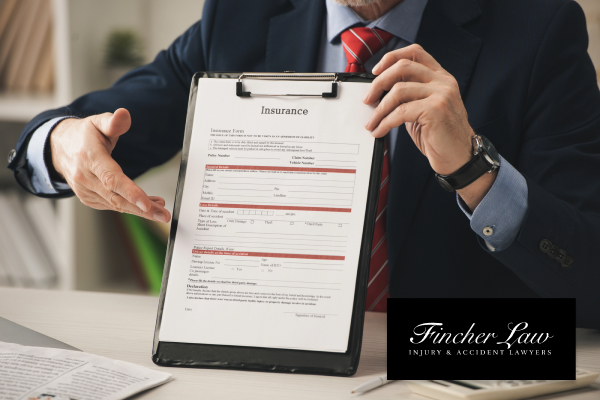
If the at-fault driver’s insurance doesn’t exist or doesn’t cover enough, you’re not out of luck. Many auto insurance policies require uninsured or underinsured motorist coverage. This can pay for your medical bills, property damage, and lost wages.
In no-fault states, your own insurance company may cover some costs regardless of blame. But Kansas follows a fault-based system, so recovery often depends on who caused the accident.
At Fincher Law, we help you understand your options. We’ll review your policy and look for every way to recover compensation, including from your own insurance provider or other sources. Don’t assume you’re stuck paying just because the driver’s insurer failed them.
Yes. A car accident attorney makes sure your rights are protected, especially when insurance companies try to shift blame or delay paying your claim.
Absolutely. You may be entitled to fair compensation for physical pain, emotional distress, and how your injuries affect your life.
Not typically. In many cases, most auto insurance policies won’t raise rates if you didn’t cause the collision, but this varies by provider.
In most injury cases, you have two years from the date of the accident to file a lawsuit or settle your claim, or your claim may be forever barred. Sometimes these limits can be increased, however, such as when a minor is involved. Therefore, seek legal counsel immediately after the accident
You can file a statement to correct it. Your lawyer can also help by collecting evidence and witness input to strengthen your car accident claim.
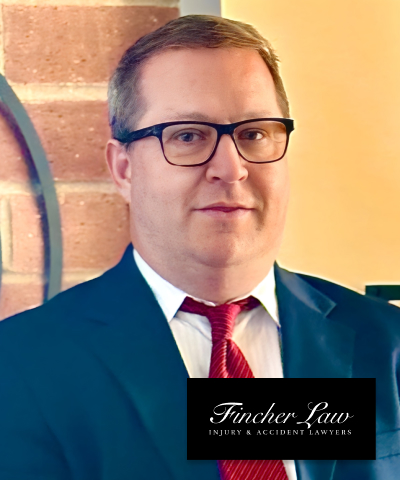
If you were hurt in a car accident that wasn’t your fault, Fincher Law is ready to help. Our legal team will guide you through every step—from gathering medical records to negotiating with insurance companies and advocating for full compensation.
We offer a free consultation with no upfront costs. You don’t pay us unless we win. With personalized care and aggressive representation, we’re here to make sure you get the fair settlement you deserve. Contact our Kansas City car accident lawyer today to learn your rights and start your claim with confidence. Call us at (785) 615-6308 today.
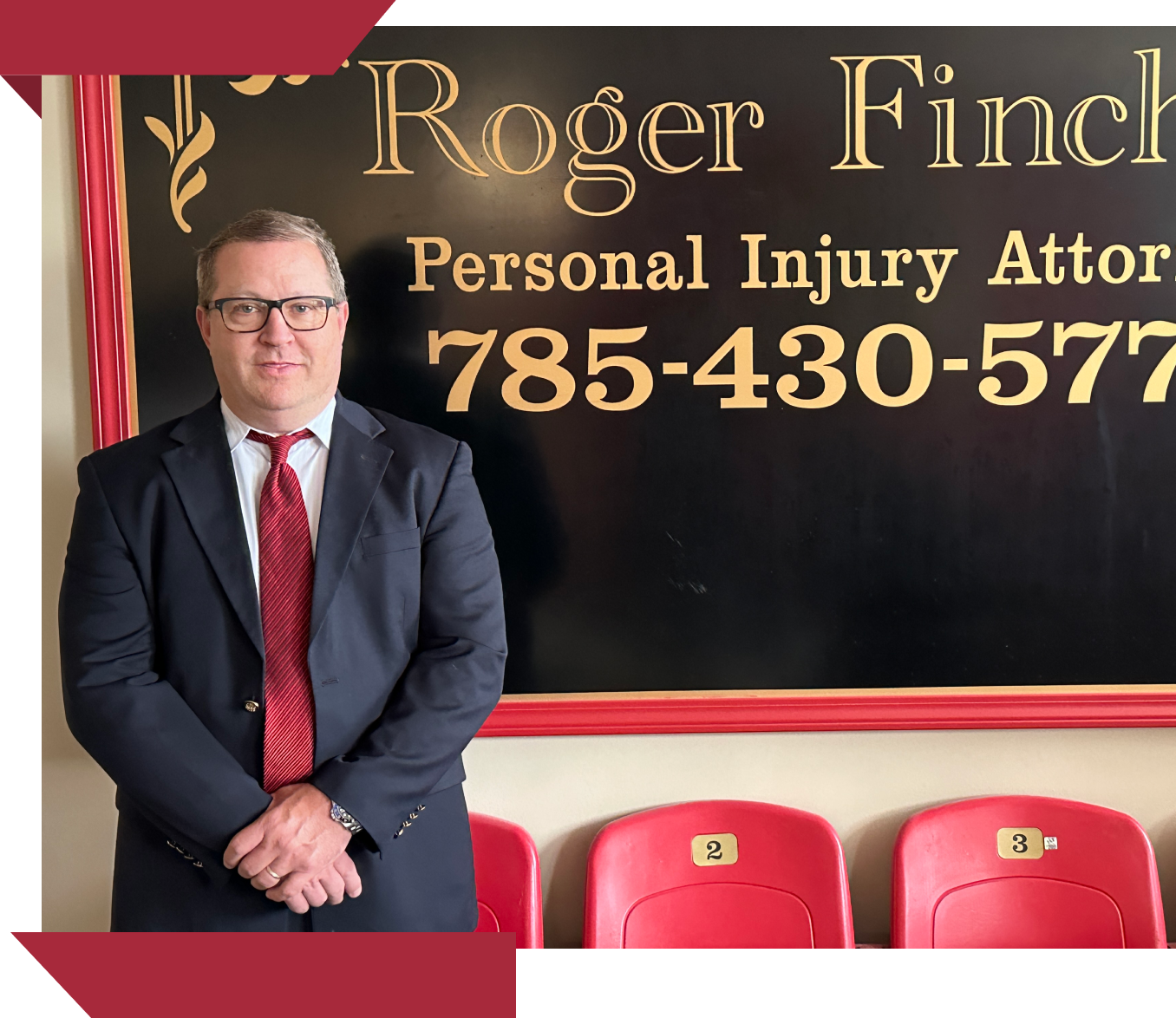
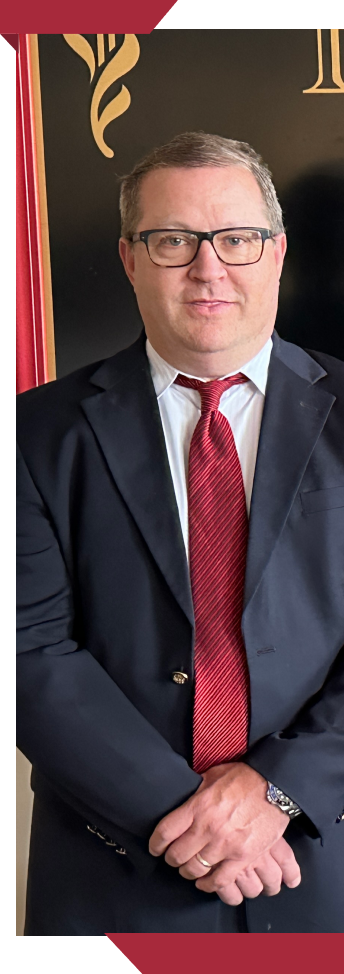

How Can We Help You?
How Can We
Help You?
Schedule a Free Consultation Now By Contacting
Our Team at (785) 430-5770 or by completing the form below
Schedule a Free Consultation Now
By Contacting Our Team
at (785) 430-5770
"*" indicates required fields